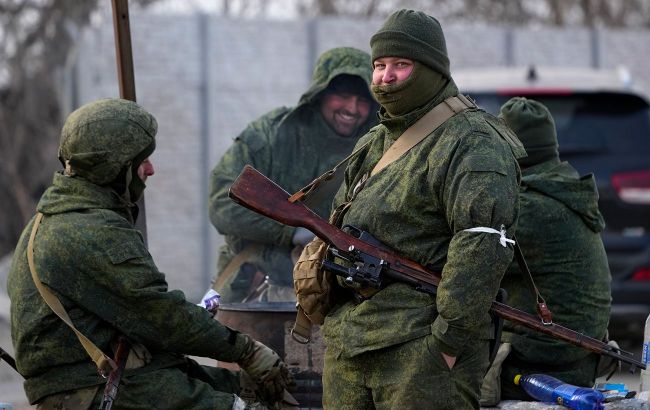Russia to deploy convicts with hepatitis B and C for 'meat assaults' - Ukraine's intelligence
 Illustrative photo: Russia plans to deploy convicts with hepatitis B and C for 'meat assaults' (Getty Images)
Illustrative photo: Russia plans to deploy convicts with hepatitis B and C for 'meat assaults' (Getty Images)
The Russian military command wants to form assault units with convicts suffering from hepatitis B and C. They will be sent for "meat assaults" in Ukraine, according to Ukrainian Defense Intelligence.
According to intelligence sources, the Russian Ministry of Defense issued Order No. 610, dated October 10, 2024. This order removes hepatitis C from the list of diseases that disqualify individuals from military service.
The Russians did this to fill units with sick convicts. Those infected with hepatitis are marked in the document as "contingent C." It is noted that before being sent to the front, the sick prisoners in colonies must formally receive the hepatitis B vaccine and undergo antiviral therapy for hepatitis C.
"According to estimates by Russian leaders, their new mobilization decision will allow them to involve thousands of convicts in meat assaults in the war against Ukraine," the intelligence writes.
According to Ukrainian intelligence, there are about 10,000 hepatitis patients in prisons and detention centers in the so-called Central Military District of the Russian Armed Forces. Of these, about 15% have agreed to fight voluntarily.
The first four assault companies and two reserve companies made up of sick convicts are being formed in the 1435th and 1437th motorized rifle regiments. The newly formed Russian assault companies "B-C," named after the hepatitis types, are planned to be stationed in the temporarily occupied territories of the Luhansk and Donetsk regions.
Russia recruiting convicts for the war in Ukraine
Russia began actively sending convicts to fight against Ukraine in 2022. Initially, this recruitment was carried out by the Wagner Private Military Company, and later by the Russian Ministry of Defense.
Previously, prisoners were promised pardons, but now only conditional releases are offered, and the term of service has increased to the end of the "special military operation."
In October 2023, Russia recorded a drastic decline in the number of prisoners, which is attributed to their deployment in the war.
Moreover, it was recently reported that the convicts recruited by the Russian Ministry of Defense are dying at the front two months after being sent to the frontline.

